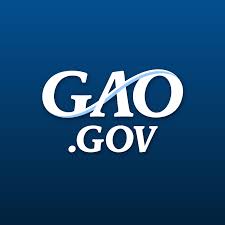
Early last year, two key Democratic senators wrote to five companies that contract with colleges to take their academic programs online, asking for information designed to address the lawmakers' concern that the companies' business practices "appear to undermine the best interests of students."
The letters from Senators Elizabeth Warren of Massachusetts and Sherrod Brown of Ohio were widely seen as a warning to the companies (commonly referred to as online program managers, or OPMs) that they could face significant critical scrutiny around the legality of their practices if a Democrat -- Warren was then among the leading candidates for the nomination -- were to be elected president.
Now another federal review is under way -- also apparently initiated by leading Democratic senators, including Warren and Brown. But this one -- a Government Accountability Office analysis requested by Senator Patty Murray, the top Democrat on the Senate's education committee -- by most accounts takes a more even-handed approach to the topic than the Warren and Brown letters were seen as doing.
Phil Hill, an education technology consultant and analyst who was interviewed by GAO investigators, said their inquiry "seems like actual research, and that matches the nature of the GAO," which is generally regarded as living up to its self-described goal of giving Congress and federal agencies "objective, nonpartisan, fact-based information to help the government save money and work more efficiently."
Hill and others who've spoken to the GAO officials said they were impressed by "the homework they had done," the questions they asked and their appreciation for nuance.
In particular, they said, the GAO analysts seemed to recognize that many types of companies and organizations play a role in helping colleges create and manage virtual academic programs, and that the traditional online program management companies -- 2U, Pearson Learning and the other companies singled out by the Warren-Brown letters -- are just one piece of a larger puzzle.
This 2019 analysis by Holon IQ, a higher education data and market intelligence firm, for instance, showed a growing and diversifying set of companies that, in one way or another, are operating in this space: MOOC providers such as Coursera, edX and FutureLearn; narrower online services companies such as iDesign and ExtensionEngine; large service companies such as Kaplan and Zovio that emerged as they broke off from one-time for-profit colleges; and even newer providers such as InStride, Cintana and Outlier that, in one way or another, are creating partnerships with colleges to deliver various aspects of their educational programs.
Some of those companies -- and some of their tactics -- have drawn more scrutiny than others. Warren's and Brown's 2020 letters were designed to tease out information about some online program management companies' practice of providing up-front funds to colleges to build programs in exchange for an (often large) share of students' tuition revenue over a decade or more. Some advocates for students and analysts have questioned whether that practice is (or should be) legal under federal law.
As the two senators wrote last year, “It is also critical that policy makers determine if OPM business practices -- specifically OPM contracts that require tuition-sharing arrangements -- are legal, an appropriate use of federal student aid dollars, and in the best interest of students.”
Trace Urdan, a managing director at Tyton Partners who was interviewed by the GAO, said they covered a lot of ground but were particularly focused on "where and how the Department of Education should be leaning in" to the online learning space, particularly at a time when many if not most colleges and universities have expanded their dependence on virtual forms of instruction because of COVID-19.
Urdan also said the GAO officials seemed intent on exploring gray areas rather than sticking to black and white. For instance, on the thorny issue of the appropriateness of revenue sharing, he said the conversation revolved around whether the academic programs in question involves students who are or are not dependent on federal financial aid. They also discussed the reality that lines were increasingly blurring between providers that once operated exclusively on a revenue-sharing basis and those that charged colleges explicitly for each service they performed.
"They seemed to recognize that OPM is a less and less useful shorthand" for an increasingly complex and diverse market, Urdan said.
What's Ahead?
GAO reviews typically take several months to conduct, and the reports they produce are shared first with the members of Congress who requested the study before being released to the public.
So it will be some months before this particular report emerges. And its potential results are a matter of speculation only. It is likely, though, that the findings will influence how Murray and others approach colleges' use of outside providers in delivering academic and student support programs when they rewrite the Higher Education Act -- a long-delayed process that will probably be pushed well into 2021 if not beyond by more pressing priorities like the pandemic.
GAO is almost certain, at a minimum, to call for more transparency and disclosure of information about relationships between colleges and the companies they work with, such as the release of contracts or publication of data about student outcomes and other information like that contained in 2U's recently released transparency report.
Far less clear is whether the results will embolden lawmakers to push to limit the influence of online enablers broadly, or focus their scrutiny on subsets like the companies that have emerged from the controversial conversions of for-profit colleges into nonprofit ones.
"help" - Google News
February 03, 2021 at 03:02PM
https://ift.tt/3tmxYSh
Government Accountability Office is exploring landscape of companies that help colleges go online - Inside Higher Ed
"help" - Google News
https://ift.tt/2SmRddm
Bagikan Berita Ini














0 Response to "Government Accountability Office is exploring landscape of companies that help colleges go online - Inside Higher Ed"
Post a Comment